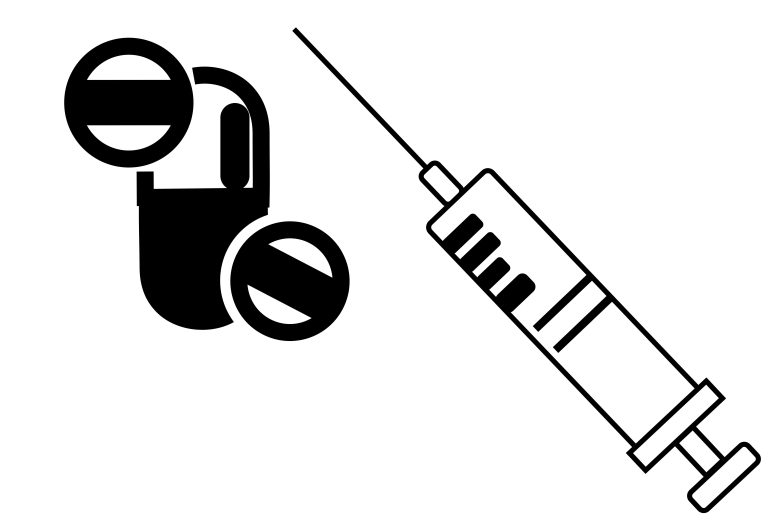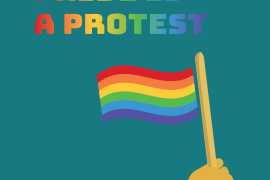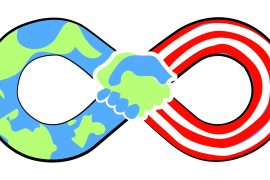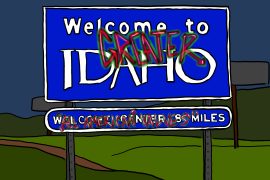On April 1, 2024, Oregon Governor Tina Kotek signed into law a bill re-criminalizing drug possession, making it a misdemeanor to possess small amounts of drugs like cocaine, meth, and fentanyl. The news made me think– Why is the government still fighting a ‘War on Drugs’? What do politicians really hope to achieve?
We need drug control, not people control. Why are we still fighting this ‘War on Drugs’? Perhaps the government could nationalize the drug industry and become the sole possessor, manufacturer, and distributor of all drugs. Seems the “war” would be won overnight.
People have a right to ingest what they want into their bodies; ultimately, they will if it’s what they want to do. However, if the government took control of all drug distribution, drugs could be provided and even administered if needed. Drug use could be conducted efficiently, with oversight by appropriate, qualified staff, including medical professionals, such as seen in countries like Portugal.
The provisioning of drugs under the strict supervision, care, and control of the government would cut out all competing black marketeers that are outside of the control of the government. This monopoly would also decrease the cost of drugs since the cost of smuggling them is largely what makes them cost so much. Lowering the cost of drugs would essentially lessen an addicted person’s necessitation of committing a crime to support an expensive habit.
Who would buy green leafy substances in mini zip-lock baggies bearing no labels from shady-looking weed dealers standing in dark alleys if there were well-lit and guarded weed dispensaries open legally with strict state oversight and enforcement, selling lab-tested cannabis products and being taxed heavily? If the government applied the same approach to other drugs such as heroin, cocaine, and methamphetamines, perhaps we could mitigate drug-related crime. I don’t believe that everyone will use drugs simply because they can. I’ve been around most kinds of drugs for most of my life and have only chosen to smoke weed. The fact is, as things are right now and as they have been for decades, mostly anyone can buy mostly any kind of drug, mostly anywhere—anyway.
Perhaps I’m seeing the problem from a different perspective since I used to sell drugs. For me I had been selling crack since the age of twelve, but it wasn’t until the age of 18 when I was first charged with selling the highly potent and addictive drug—crack cocaine—the same drug used and sold by my parents, aunts, uncles, cousins, friends, neighbors and others in the family and community I was raised in, at the time and place I’m from. Back then, we called it ‘the crack epidemic’.
It wasn’t alleged that someone handed me any money, nor was it alleged that I had actually sold drugs to anyone. But because the amount of drugs was allegedly more than what the State considered a “user’s amount” of drugs, there was enough in that fact alone to charge me with “delivering” drugs rather than simply possessing them. As Draconian as it may seem in the age of Oregon’s Measure 110, which, when passed in 2020, legalized small amounts, including the amount I was alleged to have possessed, these were the laws that were on the books at the time.
I feel like it’s a cliché to deny the drugs were mine, but the truth is, I wasn’t even selling drugs at that point in my life, and I have no idea how there could have been drugs in my coat pocket unless they were placed there by someone else—someone like the officer himself. However, the time has been served, and the debt has been paid in full so there’s really no point in arguing it. It is also true that at the time of my arrest, I was working full-time and attending college. However, because it was a cop’s word against my own and because the amount of drugs in question was a “substantial quantity”—which was only 10 grams under Oregon law at that time—and because also at that time Oregon was one of only two states that required a mere 10 of 12 jurors to convict a defendant at trial, I opted to take a plea of ‘no contest’ in a plea bargain agreement for a lesser sentence.
For those who may not know what ‘no-contest’ means—it means that I refused to say I did it (because I didn’t) but that I agreed that I could not prove otherwise. I didn’t believe there was any hope in proving my innocence, so this seemed like the wisest option. The penalty was a maximum of ten years, but after the judge accepted my plea of ‘no contest’, I was sentenced to a term of 20 months in prison for a first-time, non-violent felony drug offense and subjected to a three-year term of post-prison supervision to follow the sentence of imprisonment.
I sold crack from the age of 12, and it is as sad as it is true how normal it was for people in my environment to go to prison for drugs. It was normal to see family members and hear of others in the community getting caught by the police and usually, after lengthy court proceedings, being sent to prison, then getting out, and going right back. Both my biological father and stepfather had been locked up several times. For me, it seemed inevitable that I’d eventually face similar consequences.
During my childhood, my parents both sold and used crack. Other members of my family also sold and/or used crack—mostly in the wide open with no care or concern of the impression it may have made on others—and this was back when it was felonious! The community I grew up in witnessed the same, and most of my friends had parents and/or other close family members who either used or sold crack. It was a normal occurrence in my environment.
By mid-adolescence, I was selling crack in open-air drug markets all over Portland. I’d post up on corners, curbs, strips, alleys, parks, and other public spaces, where I’d catch the customers driving by just as openly in search of what I was just as openly selling. I’d also post up in bars with drugs and rake in cash from the bar to the restroom. I’ve set up shop in apartments and houses where I’d also cook cocaine into crack, and sometimes, depending on the size and layout of the dope spot, I’d rent out adjoining rooms for addicts to smoke their crack as long as they bought it from me.
I did all of this before the age of eighteen, and so by the time I finally got arrested, charged, and convicted of selling drugs, I must have deserved it, right? When facing “justice” for being a “drug dealer,” I feel I was viewed as somehow worse than the many parents who were smoking crack and leaving an entire generation of children to be raised by the streets or the State—as my own parents did. Who is to believe that if I weren’t around to sell drugs, there wouldn’t be someone else to buy drugs from?
When I arrived in prison, I knew and recognized hundreds of other prisoners. I recognized and reconnected with people my age, younger and older, family, neighbors, associates, and people who were from the same place I was from that I’d only heard of, and who’d been locked up all of my life.
Oregon’s Ballot Measure 110, officially known as the “Drug Addiction Treatment and Recovery Act,” was passed by Oregon voters in November 2020 after a summer-long siege of the criminal justice complex in downtown Portland. It represented a significant shift in the state’s approach to drug policy by decriminalizing the possession of small amounts of certain drugs and redirecting funds from law enforcement to addiction treatment and harm reduction services.
Not only did Measure 110 decriminalize the possession of small amounts of certain drugs, including cocaine, heroin, methamphetamine, LSD, MDMA (ecstasy), psilocybin (magic mushrooms), and oxycodone, but also, during its short lifespan, this decriminalization included possession of these drugs for personal use a civil violation, akin to a traffic ticket, rather than a criminal offense. The measure reduced the penalty for possession to a $100 fine, which could be waived if the individual agreed to undergo a health assessment.
One of the most significant aspects of Measure 110 was its redirection of funding from the criminal justice system to drug addiction treatment and recovery services. The measure mandated the establishment of a statewide drug addiction treatment and recovery program, funded through a portion of the state’s cannabis tax revenue and savings from reduced law enforcement and incarceration costs.
Measure 110 aimed to expand access to addiction treatment and recovery services for individuals struggling with substance abuse, requiring the establishment of addiction recovery centers across the state, providing services such as peer support, counseling, and access to naloxone (a medication used to reverse opioid overdoses).
By decriminalizing the possession of small amounts of drugs, Measure 110 sought to reduce the burden on the criminal justice system and alleviate some of the negative consequences associated with drug convictions, such as incarceration and criminal records.
The measure reflected a shift towards a public health-oriented approach to drug policy, focusing on harm reduction, treatment, and support rather than punitive measures. Proponents argued that this approach would be more effective in addressing substance abuse and addiction while also reducing the social and economic costs associated with the criminalization of drug possession.
With the issue of re-criminalization rising to the topic of the hour, it just seems like we’re going around in circles and perhaps even worsening the many problems associated with the overall greater issue of a ‘War on Drugs’—such as the people’s confidence in the government’s promises one way or another—or back the other way, as this is a “re”-criminalization.
If the government wants to “win” this so-called “war,” it’ll require a national full-scale mobilization of resources to effectuate and realize the total nationalization of the illicit drug market into one that is legal but under strict control. Oregon can’t win this one alone.
My conclusive opinion as a former enemy-combatant with more losses than gains in this so-called “War on Drugs” is that the government could always try legalization, and if it doesn’t work, they can just recriminalize drugs again, as Oregon leaders have shown, and proven they’re able and willing to do. What do we have to lose when it’s as clear as it is that we cannot win a War on Drugs by trying to control people?





